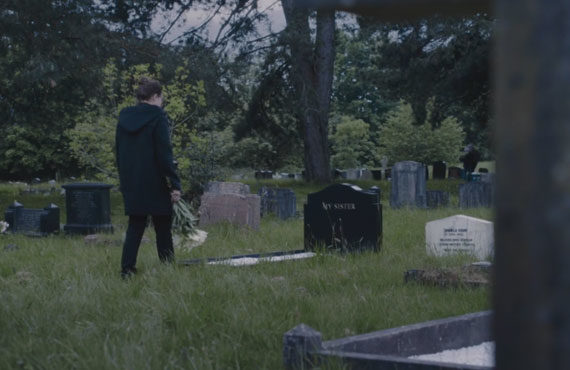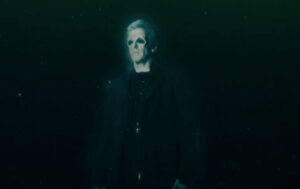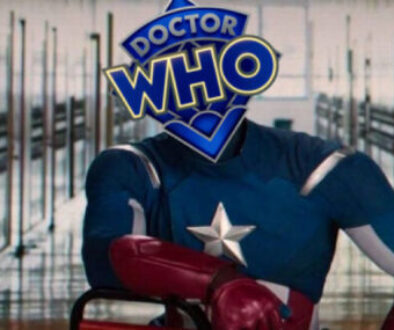Death in Doctor Who
Guest contributor Jacob Whittle on why the notion of death in the show needs to be re-evaluated.

There is a common complaint of Doctor Who that frequently rears its head when it comes to character death. Namely, that the death of a character, significant or otherwise, and indeed a character’s revival is a negative aspect of the series all Whovians adore. I believe this to be a misunderstanding of the concept of fictional death, something I hope to convince you of by the bottom of this article.
 First of all, a point of context. One of the key premises of the show, other than the obvious of time travel, is of cheating death. Regeneration of the Doctor as he is about to die has existed almost as long as the show itself, and is certainly used more overtly since the 2005 reboot. There is a strange hypocrisy of criticising the use of death in a series where the main character is more or less impervious to it. While there is indeed a feeling of finality when the actor changes, the character that is the Doctor continues to exist despite an experience that should have resulted in his (or now potentially her) demise.
First of all, a point of context. One of the key premises of the show, other than the obvious of time travel, is of cheating death. Regeneration of the Doctor as he is about to die has existed almost as long as the show itself, and is certainly used more overtly since the 2005 reboot. There is a strange hypocrisy of criticising the use of death in a series where the main character is more or less impervious to it. While there is indeed a feeling of finality when the actor changes, the character that is the Doctor continues to exist despite an experience that should have resulted in his (or now potentially her) demise.
Why does this contradiction exist? To better understand this, it is helpful to view plot structures of Doctor Who from a 4th wall perspective. We, the intelligent viewer, know that certain characters are going to survive throughout a series. We know this because actors are contracted and credited to these specific episodes and/or story arcs. So say we have a cliff-hanger of a significant character dying. The question cannot be whether this ‘death’ is permanent, as we know the actor will be returning in some form later in the series. We need to seek an alternative line of enquiry. Perhaps we should be ask other questions related to said death instead, such as how the character will continue to exist within the series lore or what plot impact this death will have.
 Let’s take the Series 9 finale as an example. I argue it is erroneous to ask the question “Will Clara die at the end of Series 9?” Instead, this question should be re-phrased as “What is Clara’s state of being going to be at the end of Series 9?” Will she have literally died? Will she be alive? Will she be incapacitated in some form, no longer able to travel with the Doctor? At the time of writing we do not have an answer, but I do not seek to answer these questions directly. I only suggest these questions need to be posed correctly to fully appreciate whatever the outcome may be.
Let’s take the Series 9 finale as an example. I argue it is erroneous to ask the question “Will Clara die at the end of Series 9?” Instead, this question should be re-phrased as “What is Clara’s state of being going to be at the end of Series 9?” Will she have literally died? Will she be alive? Will she be incapacitated in some form, no longer able to travel with the Doctor? At the time of writing we do not have an answer, but I do not seek to answer these questions directly. I only suggest these questions need to be posed correctly to fully appreciate whatever the outcome may be.
As it happens Series 9 has many good examples of using death in the manner, as a development of plot that leads towards the conclusion of the story being told. The opening sequences of The Magician’s Apprentice reveals the existence of the Doctor’s will, bequeathed to the Master at the time of the Doctor’s passing. It’s churlish to suggest or assume the Doctor is truly dead and no longer exists in a series titled by that character. So why has this will appeared? What purpose has the Doctor sent it out for? What is contained in the will? Again, at the time of writing these questions remain unanswered. But it is hardly a wild assumption that this plot point will be addressed at in future. We the viewer are asking searching questions. We are curious, and therefore engaged in the series which is a positive state to be in.
 I found it quite fascinating that this particular plot structure was met somewhat divisively by fans, especially within the sample of DWTV discussion threads. Using the same logic discussed in my opening paragraph, some people believed it a cheap plot point. However, in the subsequent two parter, the conclusion of Under the Lake with the Ghost Doctor was almost universally praised even by the more cynical as a thrilling setup to Before the Flood. They are arguably the same plot structure. The Doctor has “died”, but will come back to life to allow the series to continue. Yet each of the two scenarios were met with very different reactions in comparison to one another.
I found it quite fascinating that this particular plot structure was met somewhat divisively by fans, especially within the sample of DWTV discussion threads. Using the same logic discussed in my opening paragraph, some people believed it a cheap plot point. However, in the subsequent two parter, the conclusion of Under the Lake with the Ghost Doctor was almost universally praised even by the more cynical as a thrilling setup to Before the Flood. They are arguably the same plot structure. The Doctor has “died”, but will come back to life to allow the series to continue. Yet each of the two scenarios were met with very different reactions in comparison to one another.
This brings us back to the feeling of contradiction that exists when it comes to understanding death in Doctor Who. In order to avoid such a conflict of logic, perhaps we can now consider being deceased as less of a character’s physical state, and more the current situation of the character in terms of the story. This would be in a similar vein to such scenarios as “trapped in the base” or “running with the Doctor”. Death in fiction is not nearly as permanent as death in real life, but that is a benefit of fiction. We can imagine death to be whatever we want it to be and serve whatever purpose is needed within our story, such is the art of story-telling. I fully acknowledge that this perspective can be tricky to hold, especially on a show like Doctor Who where the viewer is often emotionally engaged with the story being told, and I do not pretend for a second to be exempt from this. But next time a character you care for dies and/or comes back from a supposed death, perhaps it’s worth remembering that fictional death is not always the permanent construct it is in our own lives, and there may yet be a purpose for events being the way they are.
“Everybody knows that everybody dies. But not every day. Not today.”
-River Song, Forest of the Dead








